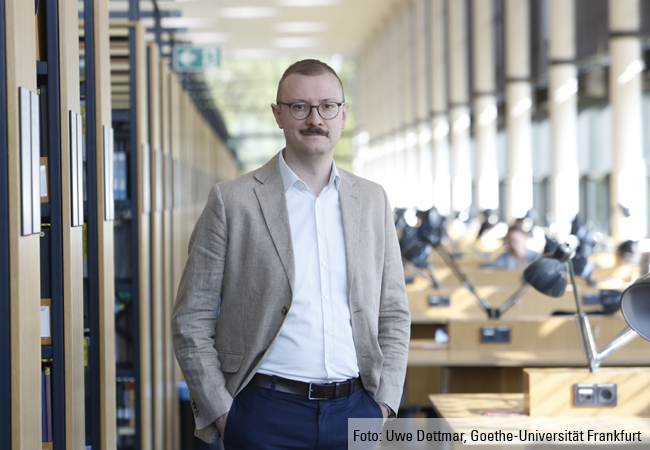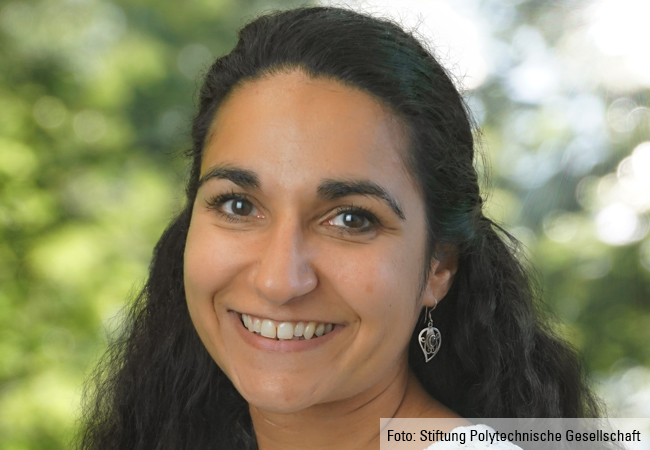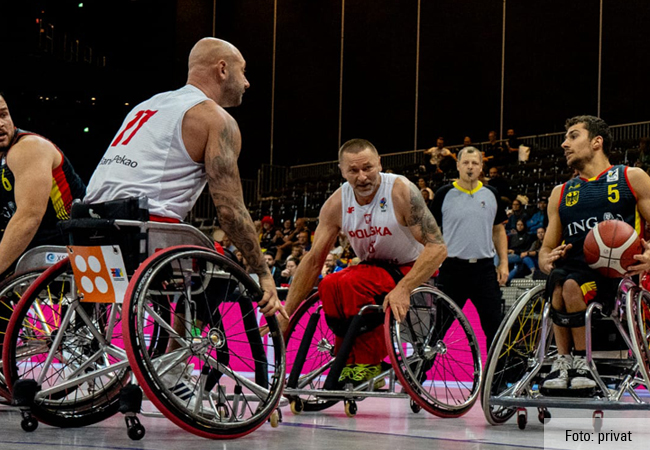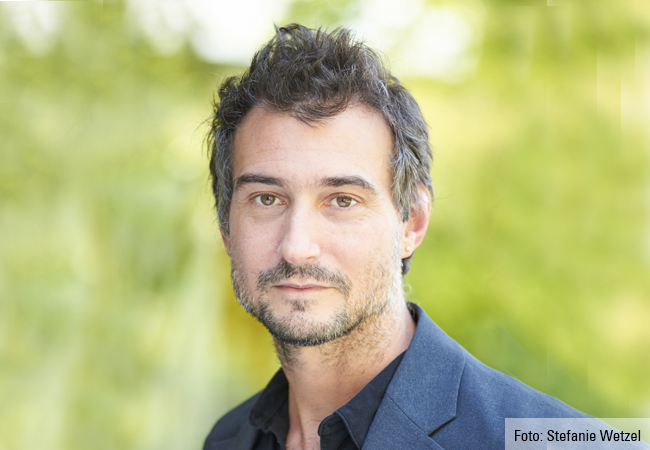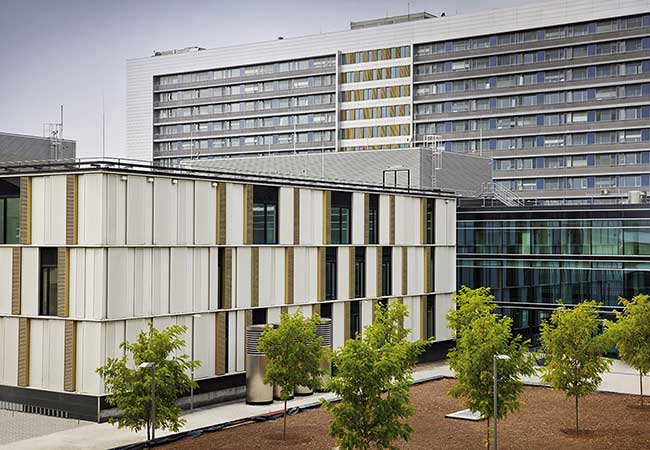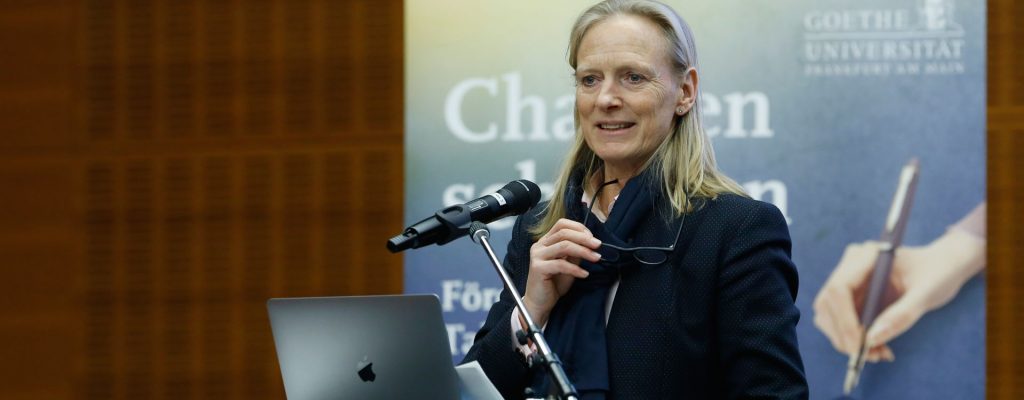
The new year will bring a change at the university’s top level. After six years, University President Birgitta Wolff will hand over the office to Enrico Schleiff, who already previously served as Goethe University Vice President from 2012 to 2018. In a conversation with Goethe Spektrum and UniReport, Wolff talks about the special “coronavirus year” 2020 and the university’s current position.
UniReport: Professor Wolff, since March you have been managing a university in a state of emergency. What new things did you learn about Goethe University in coronavirus times?
Professor Birgitta Wolff: Crisis situations cause stress. They have the potential to bring out good, almost astonishing things in many people, while others retreat in despair. At Goethe University, it was remarkable how many people developed so much energy and commitment to keep the university running despite the coronavirus and to enable students to study with 30 ECTS – that was exactly what we most wanted for the students! In addition, the atmosphere was extremely constructive and there was a strong sense of unity, especially in the large crisis management team. This signal: we are doing this together now, and we are making the best of it, was also reflected in several joint statements, one by the Senate and the Executive Board, and a second one by the Deans Group. But: This period also took a heavy toll on all of our energy. So we all agree that this cannot be a permanent state of affairs.
In January, Goethe University will have a new president, Professor Enrico Schleiff. What does this mean for the continuity of the strategy projects?
That’s a good question. Both the University Development Plan (HEP) and the research profile are not “projects of the president”, but have been developed jointly with many different stakeholders from across the university. But it goes without saying that we won’t seal up these packages just before the baton is passed, but that Enrico Schleiff must have the freedom to set his own accents. In such transitions, it is always important to find a balance between desired change on the one hand and continuity on the other. But at the moment I would tend to rule out the possibility that there will be fundamental changes. Especially since Enrico Schleiff has already been actively involved in the Executive Board for several months and before that in relevant bodies: As Executive Board representative for research and infrastructure, he is responsible for tasks that were previously the responsibility of Vice President Simone Fulda. A good transition is very important to me. This is why I have been involving Mr Schleiff for some time now in issues and procedures that are directly my responsibility; there is a difference between the separate portfolio of a vice president and the overall responsibility of a president. And Enrico Schleiff is already contributing his ideas. In this respect, I think that above all there will be a new momentum with some new impulses.
When you look back, is there anything that seems particularly worth mentioning here?
There were some special moments. But one that led to clearly new directions was the “excellence flop”: this shock in September 2017, when it came out that we would only have one cluster of excellence in the main review, that led many to ask – rightly – what was perhaps not optimal about our current type of large-scale collaborative research. As a result, many were willing to question the organisation and orientation of these research collaborations in a fundamental way. Both internally and with external consulting support, we have thoroughly reviewed everything. What was missing was a consistent separation between advising researchers, evaluating proposals and deciding what we should or should not do, and what we should or should not support. As a result, we created completely new structures and the research profile as a guide. We rely much more on benchmarking and external evaluation. And we will ensure that these recommendations are implemented: If there are plausible signals from the scientific community that we need to set new priorities in our research, then we must take this very seriously. And that is exactly what is happening now.
The State of Hessen is now also becoming more involved in supporting its universities for future excellence competitions. What preparations are already underway?
In preparation for the next round of excellence, the Hessian Ministry of Higher Education, Research, Science and the Arts (HMWK) has launched a funding line “Cluster Projects”, for which we presented four research association candidates from Goethe University in November. So far the feedback has been very encouraging; however, the official feedback from the HMWK process is not expected until January. In addition, the HMWK has developed a “strategy development line” with the Hessian universities on the fringes of the Hessian Higher Education Pact.
The state is pursuing a multi-track strategy. On the one hand, it wants to put Hessen on the map of excellence in this federal competition. On the other hand, Hessen’s science policy always includes a policy for the area. This means that we do not have such a clear commitment, as for example in Bavaria, to compressed excellence, which is then supplemented by excellence in the regions. This is why our strategy must be different from that of Munich, for example. And that is also why we network strongly with the other universities in Hessen. After all, networking is not an end in itself, but serves our scientific and social goals.
Speaking of networking: You have also represented the interests of the university through your memberships in science policy organisations; with you, Goethe University has developed closer alliances out of its cooperation with the universities in Frankfurt and the Rhine-Main region. What has changed for the university as a result?
Changes take place on several levels. On the one hand, new research questions are being posed and jointly researched through joint intensified research collaborations with non-university research institutions such as the Leibniz and Max Planck Institutes. Through our local and regional networking, we are also well connected with FRA-UAS and the other universities, especially the Rhine-Main Universities. We benefit from joint research projects and study programmes, but also from joint learning through exchange at the organisational level. Often our demands on the political arena are also congruent, and united we are simply heard more clearly than as a single university. As the “Frankfurter Wissenschaftsrunde”, for example, we formulated joint “electoral touchstones” before the local elections and have repeatedly hosted department heads from the City of Frankfurt. The KHU, the Conference of Hessian University Presidents, was also successful in terms of science policy.
In various networks we were able to actively influence several discourses on the research landscape. After all, I was KHU spokesperson for the five universities in Hessen until September, I was a member of the Executive Committee of the German Rectors’ Conference until December, and I am still on various other advisory bodies in Berlin and beyond. This has paid off directly for the universities and has, for example, helped us to negotiate the Higher Education Pact in a much more informed manner and ultimately achieve a much better result. This has enabled us to significantly improve our basic funding. That was a major political goal.
Our active membership of the German U15 network has also paid off. We are very similar as large, research-oriented universities, and there has been an intensive and increasingly trusting exchange. Sometimes the U 15 are a bit more flexible and faster than the German Rectors’ Conference and can articulate themselves more clearly to Berlin’s politicians. This is why their involvement in the various networks complements each other very well. I am convinced that the combination of the RMU, KHU, U15 and HRK Presidium has helped us a lot.
But the whole truth is that we as universities are also in competition for funding. In some cases, this creates a tense relationship with good cooperation projects – because incentive structures in the system continue to be such that sometimes it still seems more worthwhile to work against each other than to work together.
Networking with traditional Frankfurt institutions such as the Fritz Bauer Institute, Sigmund Freud Institute, ISOE, IfS and the Jewish Museum has also become even more intensive. What do these partnerships mean in practical terms for the development of Goethe University?
We have actually taken this cooperation to another level. Shortly after I took up office, we had a plan for a joint appointment with the Fritz Bauer Institute – this “Holocaust Professorship” – the first in Germany – which we were able to fill very well with Sybille Steinbacher. Now we are carrying out a joint appointment with ISOE in order to closely link the academic management there with the university; the same is currently being done with the Institute for Social Research. With the Sigmund Freud Institute we well, the Science Council also recommends scaling up from half a joint appointment to an entire professorship. We are also more closely networked with other research partners in Frankfurt. For example, the director of the Jewish Museum is also an honorary professor at Goethe University; the director of the HSFK, Nicole Deitelhoff, is a “part-time professor” at Goethe University and a co-speaker at the Forschungsinstitut Gesellschaftlicher Zusammenhalt (Research Institute for Social Cohesion). In SAFE, we even have a new Leibniz Institute in the House of Finance directly on campus. The strategic link with the DIPF has also become much closer, for example in the digital studies programme. I consider these close alliances to be very important developments. They enable us to get out of the unproductive competition between the various research institutions, despite the competition for funding. And they are also a very special opportunity for a unique selling point of our university, a unique alliance specific to Frankfurt.
The “invention” of the museum shore a few decades ago changed the perception of Frankfurt very positively. You have similar ideas with the vision of a campus mile. What is it all about?
The basic idea is to convey more strongly from the start that Frankfurt is not only a city of bankers and logistics specialists, but also a city of knowledge and science. This density of universities, non-university research institutions and other, also researching, institutions such as the Frankfurt Zoo or the Freien Deutsche Hochstift is unparalleled. We want to make this other side of Frankfurt visible and tangible as a brand and thus be an even more interesting partner for cooperation far beyond the Rhine-Main region. We think of the campus mile along the northern Alleenring, with Goethe University, FRA-UAS, Frankfurt School of Finance and Management and the German National Library. One anchor point will be the future university library. In addition, a joint knowledge centre – the “Campus-V”, where V stands for Verantwortung (responsibility) – will be established opposite the National Library for joint work on topics such as social entrepreneurship, applied artificial intelligence and knowledge transfer.
In the context of the German Government’s High-Tech Forum, of which I am a member, we have also formulated the idea for a model project in the Rhine-Main area during a “regional dialogue”. The idea is to design prototypical career development paths with a kind of trainee programme, which would make cross-institutional career paths possible. If our doctoral students and postdocs get to know different knowledge organisations from the inside, they can make more accurate decisions about what suits them best. This is increasingly a problem, given that conventional university careers never work without a change of location – and that’s a problem, too, because nowadays both partners in a relationship usually work in academic careers. If we think more flexibly about academic careers, there are also more opportunities for an academic career at the same location.
In recent years, there has been much debate about freedom of opinion and academic freedom in society and at the university. How do you personally view the discussion? What position should the university take?
For me, it has always been and still is important to position the university as a place for scientifically guided discourse in society. A university is not a regulars’ table at the pub. That also has its place, but not on campus. When you are invited to be part of a scientific discourse, you are allowed to say anything, but only on the basis of facts and hypotheses that also allow you to question yourself – that is science. With the Bürgeruniversität (citizen’s university), we have an event format that is open to current and controversial topics. For example, in the event “Diskurskultur im Zwielicht – Wie viel Meinungsfreiheit verträgt die Uni” (Discourse culture in dubious light – how much freedom of expression can the university take?), I had open and constructive discussions with academics and student representatives; overall, we reached a consensus that we want to argue about controversial topics discursively, i.e. with objective arguments; intimidation and threats definitely have no place at a university.
Diversity Day 2020 was also celebrated at Goethe University on 10 December: Where does Goethe University stand today when it comes to diversity and equality?
The appreciation of openness and diversity can be found in the mission statement of Goethe University; whoever studies, researches, or works at Goethe University should be able to develop his or her potential and participate in the respectful coexistence of a modern institution, regardless of his or her gender, origin and inclinations, skin colour and personal characteristics. Today we have much more heterogeneity in the student body. If you look at the development of our Equal Opportunities Office, you can see just from the increase in the number of positions there how much more important this topic has become for us as well. At one of the last meetings of the Executive Committee, we decided to make the Anti-Discrimination Office permanent. We have further developed and expanded the support structures for first-year students, but we have also significantly increased the psychosocial counselling for both students and staff. I believe that we are reflecting trends in society as a whole. One of my concerns, which I have been pursuing for many, many years, is to increase the number of women in professorships. I myself still come from a generation where I was always the first and only woman, no matter whether it was the Council of the Business Administration Faculty at the LMU in Munich or the Faculty of Economics at the University of Magdeburg. Thankfully, women in these positions has increasingly become more normal. We have appointed so many women this year and last year that we could have reached parity in three departments. I am looking forward to the annual evaluation in 2020.
After six years as president, you are now actively involved in science again. What will you do research on?
To start with, I will take a research sabbatical over two semesters to do research on topics of digitalisation, on “new work”, and on new forms of organisation. In doing so, I will be able to seamlessly return to my previous academic work: Much of what I did back then, which at that time was considered science fiction by some, is now highly topical again. When it comes to “working in the digital world”, there are of course also many formative tasks that I might be able to get involved in. For example, I’m in talks with the state government about a corresponding initiative in the coalition agreement. I will of course continue to do whatever I can for Goethe University – if desired. The fact that many of my current mandates are not linked to the office of president, such as the deputy chairmanship of the Supervisory Board of the Federal Agency for Disruptive Innovations, my membership in the High-Tech Forum, and on juries at the BMBF, helps in this respect.
The office of president cannot be accommodated in an eight-hour day. What did you miss during the presidency that you would now like to do again?
First: research; having time to read, think, and write again. And to be honest, I’m also looking forward to not having to reckon with a 12 or 14-hour working day every day. I am looking forward to spending more time with my family and our animals, especially the horses; that is a different kind of quality of life. Being able to work for such a great university is of course also quality of life, and also incredibly satisfying. But I can tell you: it is also really, really exhausting at times. Scientific work is also a product of open spaces. I’m very happy to do research and also to continue to discuss science policy from a place of balance. And, of course, I’m also looking forward to the exchange with students in teaching!
Interview: Imke Folkerts and Dirk Frank



